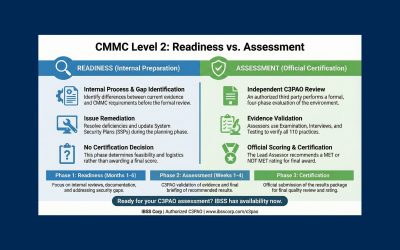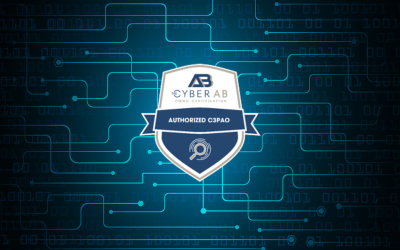What Is Cyber Hygiene?
Cyber hygiene refers to routine tasks and best practices to protect an organization’s users, devices, and networks. The basic principle of cyber hygiene is to keep systems updated and maintained to prevent or reduce the chances of cyber attacks.
The Goal of Cyber Hygiene
Cyber hygiene aims to ensure that no user’s information, including their personal and organizational information, is threatened. The goal of cyber hygiene includes:
- Preventing identity theft and its impact by protecting users against the theft of personal, business, or financial information.
- Minimizing the risk of systems getting infected by malware by avoiding viruses, worms, spyware, ransomware, trojans, and other harmful programs.
- Protecting users from phishing or social engineering attacks through user awareness training.
- Protecting the system integrity by making sure that the computer systems and networks are effective and secure from attacks that could compromise their functions and threaten data.
- Avoiding operation downtime in the event that external threats to the business continuity of operations and critical infrastructures occur.
- Keeping cyber hygiene policies and governing standards conduct up to date.
Benefits of Cyber Hygiene
Good cyber hygiene measures help protect information from being lost and limit cyber criminals’ abilities to exploit loopholes in the system’s security. System’s software security must be routinely updated. Constant good cyber hygiene practices have the following business advantages:
- Reduction of risks: Cyber hygiene reduces the risks of attacks from cybercriminals. Some measures include deploying pertinent software upgrades, updating security patches, and installing current antivirus and anti-malware applications.
- Preventing common cyber threats: Cyber hygiene practices decrease common cyber threats such as phishing, stealing credentials, and social engineering. These cyber threats can be significantly decreased by implementing strong password management using two-factor authentication..
- Strengthening cybersecurity defenses: Adequate cyber resilience requires the application of sound cyber hygiene practices. This strategy further creates the foundation for the implementation of necessary technological controls, policies, and processes that are meant to manage cyber risks. To successfully implement, supervise, and enforce these protection measures, cyber hygiene behaviors should be observed by both employees and organizations.
- Reduced costs: Good cyber hygiene can help organizations save money in the long run by eliminating expensive recovery security procedures and by avoiding penalties for non-compliance.
- Higher staff productivity: Employees are less likely to face interruptions as a result of malware or some other type of security breach when the organization has good cyber hygiene measures in place.
Best Practices
- Use strong and unique passwords: Employees should create complex passwords with a mixture of uppercase letters, lowercase letters, digits, and symbols. Never use family member names or birth dates as passwords. Make sure to use a different password for each account.
- Enable MFA: Multi-factor authentication is a second layer of defense against cyber threats
- Regularly update software: Develop a schedule to regularly update software and software patches.
- Use reliable security software: Use certified security software programs on all devices and regularly update them. These programs can help the user to detect and block malware programs.
- Be cautious with email and attachments: Do not open or respond to unsolicited emails, especially those that have attachments or web links. Do not click on unfamiliar links or open various attachments from suspicious emails since these may be maliciously laden with viruses.
- Educate yourself and others: Everyone should do their part to protect themselves against online risks by enhancing their technical knowledge and by regularly updating their passwords.
- Secure Wi-Fi networks: Avoid using default router passwords and use strong passwords for your Wi-Fi networks. Make use of network encryption so as to safeguard your wireless communication (WPA3 or WPA2). Don’t access accounts using public Wi-Fi.
- Backup data regularly: Schedule your document backups to a safe place, a portable hard drive, or a cloud storage service. This allows for quick recovery of information in case of file corruption or loss due to attempts by cybercriminals.
- Limit information sharing: Be careful sharing personal details on the internet, especially on social networking sites as these sites are often used by attackers.
- Secure mobile devices: Mobile gadgets should also have strong PINs and biometric authentication. Make sure to regularly update the device’s operating system.
- Secure physical areas: For devices with sensitive information, make sure to secure and lock them up when not in use.
- Implement firewall protection: Use firewalls on your devices and networks to filter incoming and outgoing traffic. This will provide an additional layer of defense against cyber threats.
- Ensure safety while shopping and banking over the Internet: When purchasing goods or services online, only use a secure website (look for “https” and a padlock in a browser’s address bar) and do not carry out such operations over open/public networks.
- Be alert: If a deal appears too good to be true, be careful as it is likely fraudulent. Do not click on email links from non-trusted sources.
Conclusion: The Importance of Good Cyber Hygiene
Regular cyber hygiene protects organizations against cyber threats. This includes risk assessments, security audits, role-based access, scheduled software updates, employee awareness and training, security compliance, multi-factor authentication, and secure backup procedures. By following these processes, organizations will significantly reduce their cyber threats.
Learn more here.
Learn how IBSS can help your organization be cyber secure.
The last installment of our Cybersecurity Awareness Month series will focus on recognizing and reporting phishing.





